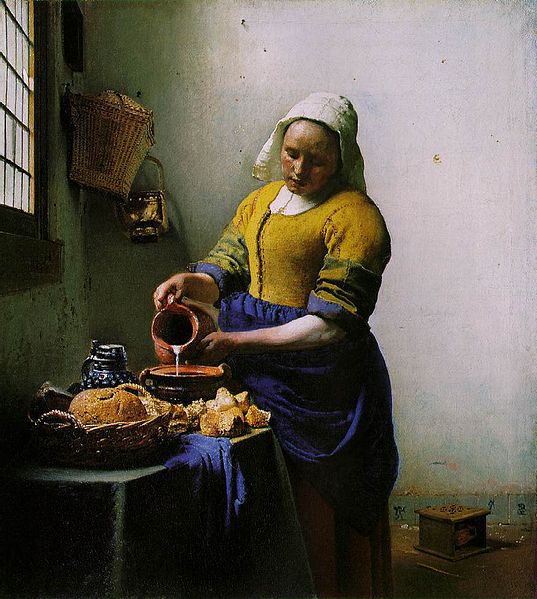Another cold morning, though not as cold as yesterday. The duck pond is free of ice, but barely; the surface ripples thickly as if it had thought to freeze but hadn’t quite made up its mind before the dawn broke. Now the sun filters weakly golden through the leafless crags of trees like a bit of tarnished jewelry, diffusing around the broken lines of branches, emphasizing their nakedness without clarifying their geometry. At least the world survived another long night. It usually does.
I have often felt that I could tell the difference between sunrise and sunset only by the light, but I have never been able to convince myself rationally that this is so. If I were stuck down in some unknown spot on the globe at one or the other time of day with no compass or geographic bearings and had to guess in an instant whether the sun was coming or going, could I? I think I could, but perhaps that’s only a conceit. The sun would appear the same distance above the horizon, its light falling at the same shallow angle, filtered through the same branches. I can’t think of any physical evidence of its movement without simply waiting to see what happened next.
Then again, a few of the Dutch masters seem to have been able to capture the difference without resorting even to painting the sky, so maybe there is a difference too subtle and complex for words. I’ve always thought that even in this interior scene Vermeer perfectly captured the light of early morning:
It couldn’t be any other time of day, could it? But maybe I only sense that because she’s a milkmaid and she’s just finished milking. Or maybe I’m full of crap and Vermeer had in mind something else entirely.
This morning, in ay case, gives the lie to all that. The orange light filtering through bare trees makes me think of sunset. Too orange, perhaps, or too wistful seeming for dawn. For a moment I can’t be sure. It could be morning with the day still to come and a bit of warming but clouds over the horizon; it could be evening before a long frigid night but stars ready to shine brilliantly and dinner waiting inside. For a moment time hangs in the balance. Then I dump the food in the chickens’ bowl and get on with the day.
